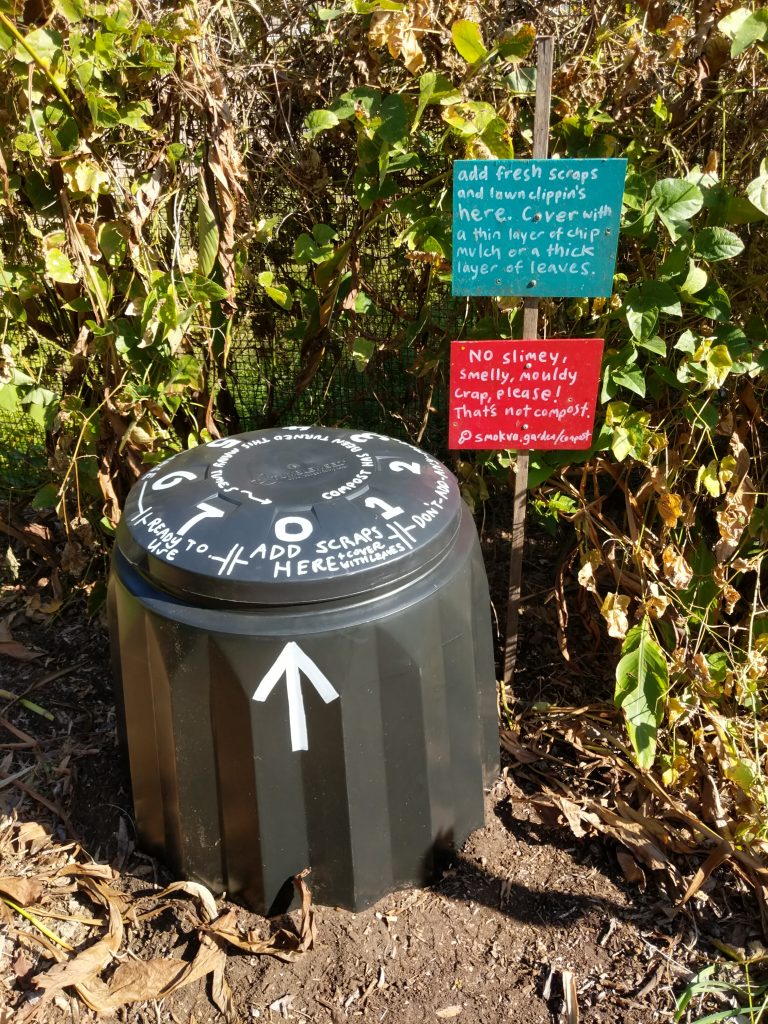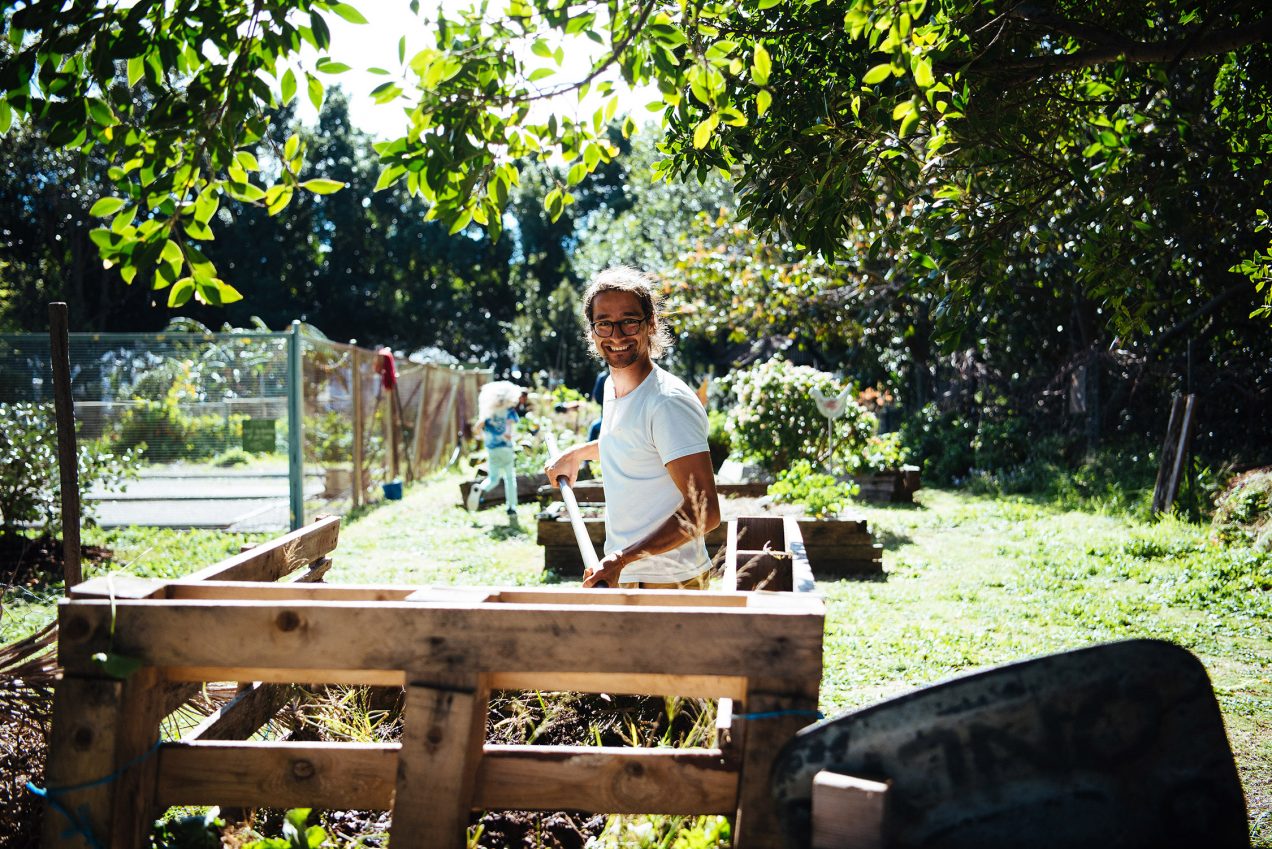You can help with composting by collecting and bringing in your food scraps or helping us turn or spreading the compost.
Turning the compost
We make a lot of compost and part of this process includes turning the piles to mix it’s contents and most importantly, to add oxygen and water. It is the adding of oxygen and water that makes the compost heat up, which accelerates the process of decomposition AND cooks any of the annoying weed seeds and roots that we are trying to recycle.
We have 8 bins, one contains the compost made this week, through to compost that was made 8 weeks ago.
Use the compost screws to bring the lower clumps of compost to the top. This introduces air and mixes the compost in the process. Any day you are at the garden you can turn one or more of the bins. The more the better. Turn the dial on the lid to increment the number indicating how many times it has been turned.

Bonus points
- Naturally we do not want any rubbish in our soil, so it is good to pull it out when you see it.
- Help egg shells along in their journey, by smashing them into calcium-flakes!
- Give those microbes a leg up and break up big pieces of crap. Pretend you’re making them a stir fry.
Compost extraordinaire wanted!
Collecting and bringing in your food scraps
Compost can be added to the bin with it’s lid marked 0 (or the lowest number you can find). These numbers will change from week to week, so you will need to go searching for the most appropriate bin.
All our compost is pre-fermented using the bokashi method. This is because we don’t want moldy, smelly, slimy crapola going in – that’s not compost.
Check out Newcastle City Council’s workshops and discounts on bokashi bins. To learn how to do it.
Alternatively, we can supply you with a 20L bucket and a pile of bokashi newspaper that we made ourselves. Hardcore 🤘.
We don’t really want biodegradable bags in our compost because they seem to hang around and the food waste goes gross inside them. I think they’re better for council+truck style compost. Same goes for all compostable single use products. These are only really a good solution when paired with a big centralised council system which collects, transports and shreds all the waste- which we don’t have in Newcastle unfortunately. So in the mean time, wash up?
Using the compost
Finished compost can be spread out under fruit trees or to freshen up garden beds. If the soil is dry, dusty and devoid of crawlies… chuck some compost on it. Spread mulch on top of the compost to retain moisture and life.
Tenders have been received for the construction of the Organics facility at the Summerhill Waste Management Centre. We envisage the Organics Facility being fully operational in approximately 2 – 3 years time.
Tanya Guthrie, City of Newcastle, 2019

